Marketing is an indispensable part of day-to-day business processes. At that, marketing landscape is one of the most dynamic, unstable and quickly evolving entities: marketers often complain they lack the time for researching and studying new trends in order to personalize their approach to potential customers.
The most efficient way to ease this load is to relieve marketers from routine tasks through automation. Trying to satiate the demand, software developers keep releasing new solutions or upgrading the existing platforms. And while every business is individual, core requirements for marketing automation software are mostly universal:
- Reliability and performance combined with feature-rich automation process
- Flexibility sufficient to adapt to particular customer relations specifics
- Ability to integrate with third-party applications
- Powerful analytics and report capabilities
- Convenience of use and ease of deployment
This article provides a first approximation insight into five popular marketing automation tools, which aspire to meet all the above mentioned requirements.
bpm’online
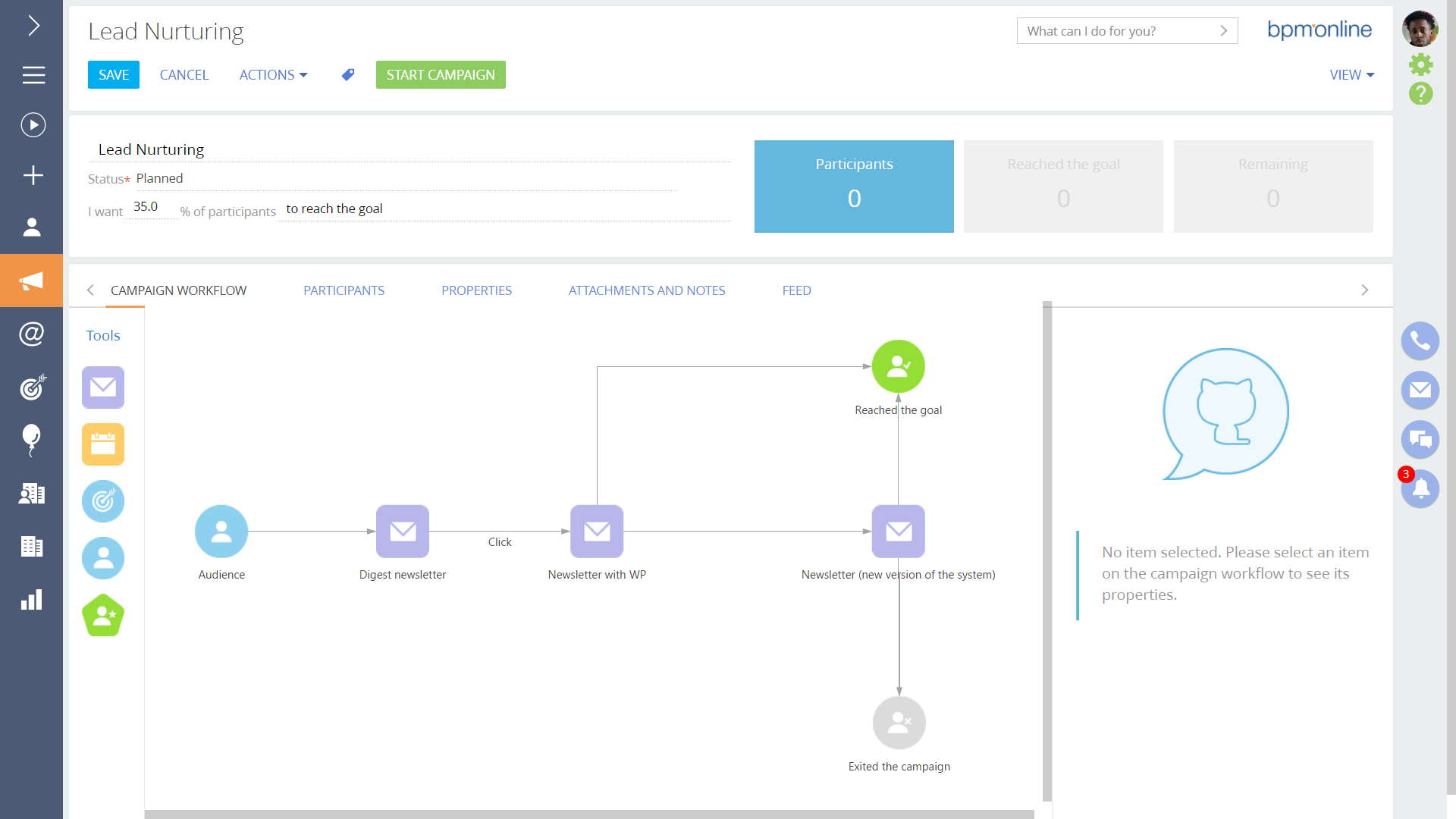
Developed with particular regard to business process management approach, Bmp’online Marketing offers full-cycle support for marketing activities in accordance with business processes designed by leading experts of the industry.
The vendor’s holistic approach means that bmp’online includes everything needed for a typical marketer: lead generation and management, website behavior monitoring, personalized marketing tools, event planning, synchronization options and much more. Intuitive visual designers for marketing campaigns and business processes let users concentrate on details while shaping their concepts into something tangible. Ability to customize almost every aspect of the system is especially handy considering that the vendor offers extensive collection of manuals.
The major drawback of bpm’online stems from its ambition to encompass every thinkable marketing-related activity: new users may find the interface over-engineered and certain features ― excessive.
Marketo
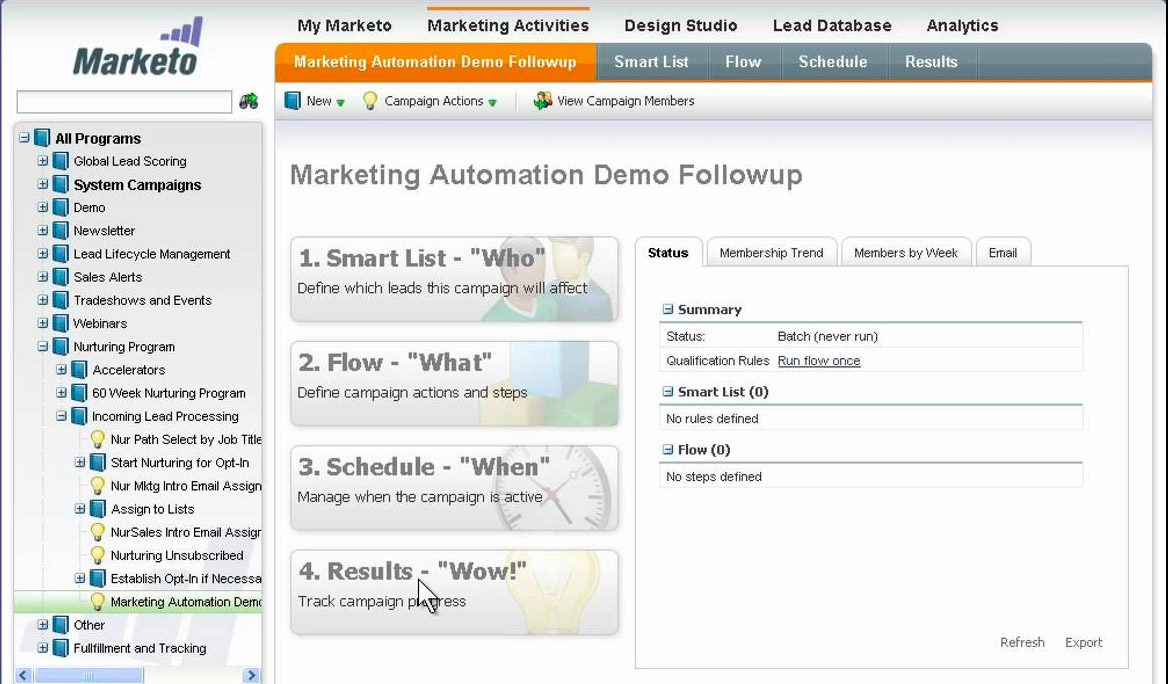
Many users consider Marketo to be one of the best choices for designing e-mail campaigns. Their assumptions are not unfounded: Marketo is a powerful tool, which allows for establishing and preserving engaging relations with customers. Its efficient lead nurturing and management features along with useful social marketing tools and a wide range of available integrations make it a reliable solution for companies of any size.
Users value Marketo for its intuitive interface, which simplifies the adoption in comparison to other popular marketing automation platforms. Another great plus is a fairly easy installation and customization process: considering a developed community of really helpful users, newcomers can get the program running quickly.
Marketo started as a specialized lead management tool, and its implementation of certain marketing automation functions is not perfect (for instance, landing page and form builder are counterintuitive and difficult to use). Another weakness is analytics capabilities: the majority of subscribers have to use third-party software as the integrated tools require considerable time and effort to produce adequate reports.
Pardot
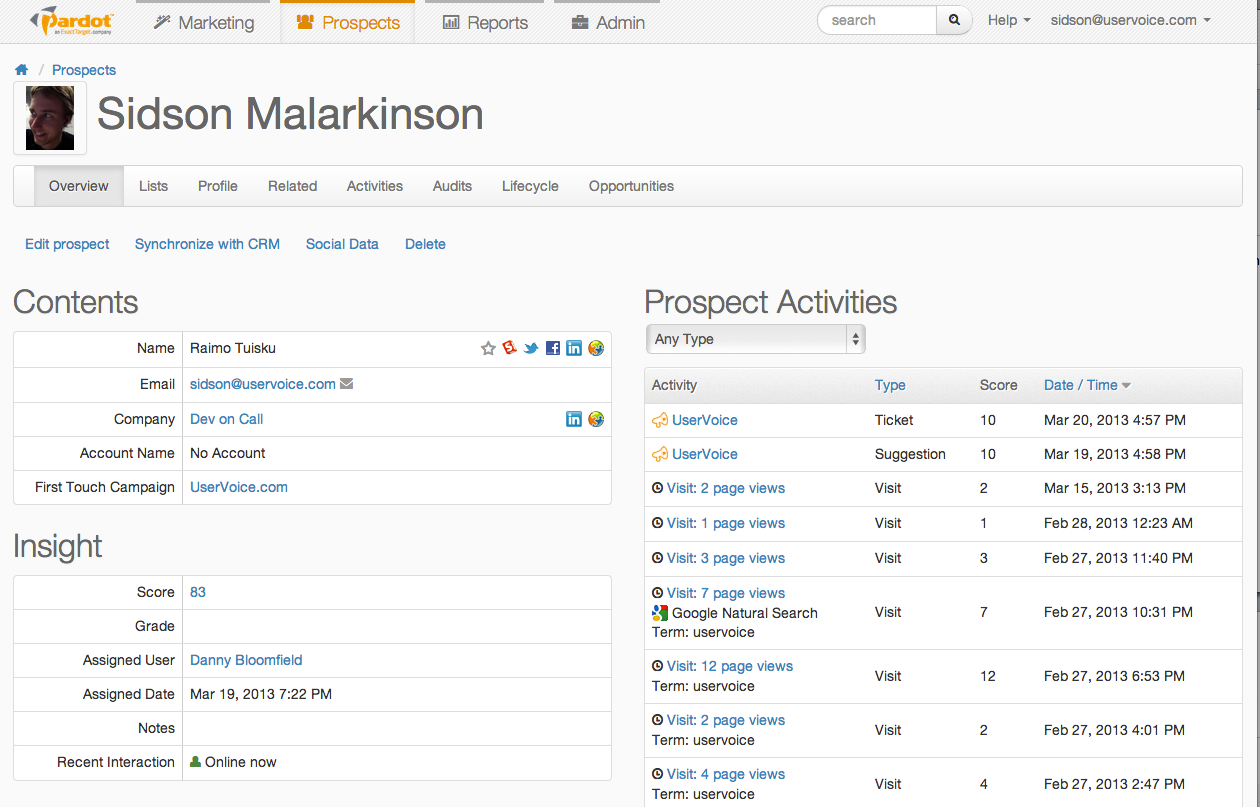
Acquired by Salesforce in 2013, Pardot considerably enhances the capabilities of this CRM in terms of marketing. This professional solution provides full-fledged marketing funnel automation support and features excellent WYSIWYG tools for creating landing pages, e-mails and forms.
Though quite expensive, Pardot is a good example of advanced marketing software, which excels in catering all major day-to-day needs of marketing professional, while its wide customization options make the platform truly versatile.
As for drawbacks, Pardot lacks many third-party integrations, offered by competitors. The developers probably thought that Salesforce support would suffice, but not all the users are okay with it.
Infusionsoft
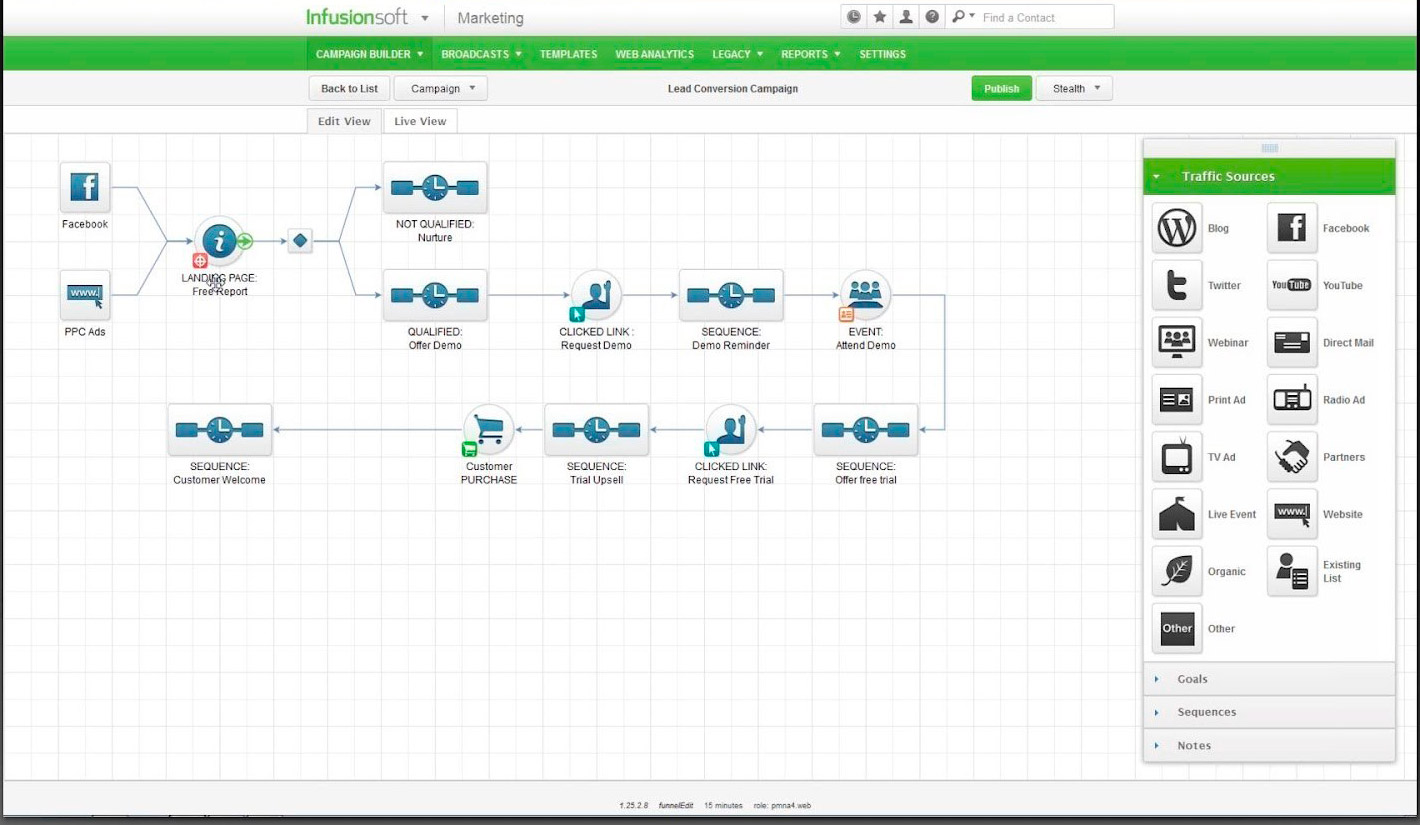
Infusionsoft is a widely recognized CRM for marketing management, striving to unite all marketing activities on a single platform. The first thing you notice after the program is launched is a surprisingly intuitive interface with everything in its place.
Zapier integration allows to connect this system to hundreds of third-party applications while user-friendly API broadens this aspect even more. However, the most valued function is its campaign builder, which is simply one of the best in the industry.
Nothing is free of flaws, and the major one for Infusionsoft is the price. While the basic rating plan seems manageable, the costs of additional features seem too high for a typical SMB, not to mention a compulsory kick starter fee of $2000. Yes, you must pay in order to study their platform, and this idea is rather disturbing. What is more, users complain that a claimed deliverability rate of 98% is not always achieved, while the system also lacks an ability to set up a dedicated IP for sending e-mails.
Ontraport
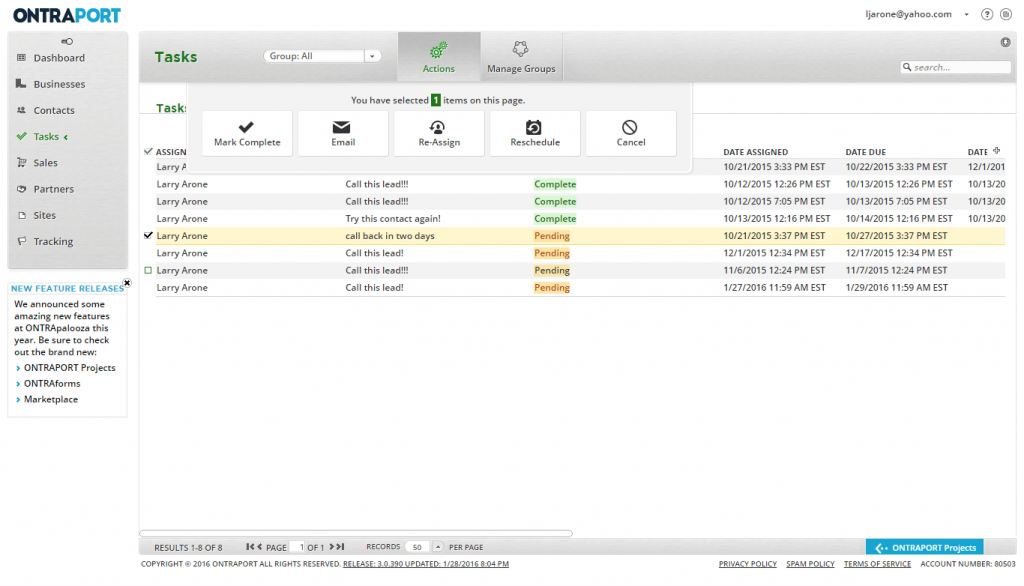
While rarely featured in best online marketing software ratings, Ontraport may become a perfect option for companies whose marketing model is based on massive e-mail campaigns with hundreds of thousands of contacts. It is one of the most affordable solutions on the market, which nevertheless, delivers a wide range of advanced features: a CRM, landing page builder, various management and segmentation tools, online event planner and so on. Full support of multichannel marketing with two-way communication is also provided.
One of the most appealing aspects is gradual scalability: instead of upgrading to the next rating package, you can simply buy additional services (e.g. users or e-mail credits). Additionally, Ontraport excels in delivery rates and offers an impressive kit of shopping cart support: automatic credit card payments, cart abandonment patterns, etc.
The downside of this service is mostly its appearance. Their reporting dashboard is much less informative than expected, and the campaign builder is text-based instead of standard flow-chart. What is more important, the database becomes quite messy for the lack of duplicate removal tools. Users generally agree that the software developers should have done a few things to simplify the learning curve, which is unnecessarily steep, and there’s no online community to speak about.

